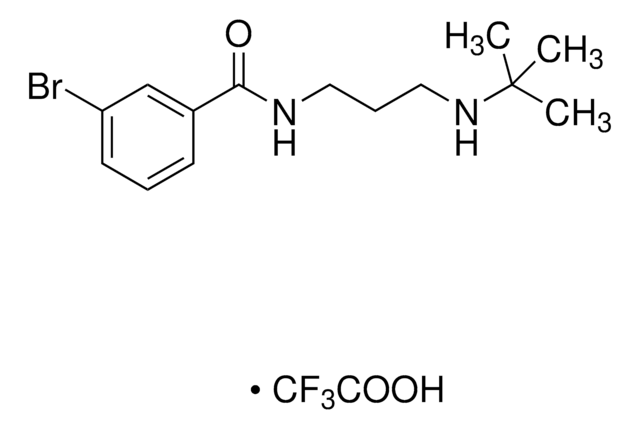H8627
Hydroxyurea
98% (elemental analysis), powder, RNR inhibitor
Sinónimos:
Hydroxycarbamide
About This Item
Productos recomendados
product name
Hydroxyurea, 98%, powder
Quality Level
assay
98%
form
powder
color
white
solubility
H2O: 50 mg/mL
storage temp.
2-8°C
SMILES string
NC(=O)NO
InChI
1S/CH4N2O2/c2-1(4)3-5/h5H,(H3,2,3,4)
InChI key
VSNHCAURESNICA-UHFFFAOYSA-N
Gene Information
human ... CA1(759) , CA2(760) , CYP1A2(1544) , RRM1(6240) , RRM2(6241) , RRM2B(50484)
¿Está buscando productos similares? Visita Guía de comparación de productos
General description
Application
- for cell cycle synchronization in MCF-7 human breast carcinoma cells, Schizosaccharomyces pombe, primary root of seedling
- as a drug for treating the parasite Leishmania mexicana in cell viability and cell cycle assay
- as an inhibitor in the cell adhesion and motility assay in Caki control and CD9 knockdown cells
Biochem/physiol Actions
Features and Benefits
signalword
Danger
hcodes
pcodes
Hazard Classifications
Muta. 1B - Repr. 2
Storage Class
6.1C - Combustible acute toxic Cat.3 / toxic compounds or compounds which causing chronic effects
wgk_germany
WGK 3
flash_point_f
Not applicable
flash_point_c
Not applicable
ppe
Eyeshields, Gloves, type P3 (EN 143) respirator cartridges
Certificados de análisis (COA)
Busque Certificados de análisis (COA) introduciendo el número de lote del producto. Los números de lote se encuentran en la etiqueta del producto después de las palabras «Lot» o «Batch»
¿Ya tiene este producto?
Encuentre la documentación para los productos que ha comprado recientemente en la Biblioteca de documentos.
Los clientes también vieron
Artículos
Cell cycle phases (G1, S, G2, M) regulate cell growth, DNA replication, and division in proliferating cells.
Cell cycle phases (G1, S, G2, M) regulate cell growth, DNA replication, and division in proliferating cells.
Cell cycle phases (G1, S, G2, M) regulate cell growth, DNA replication, and division in proliferating cells.
Cell cycle phases (G1, S, G2, M) regulate cell growth, DNA replication, and division in proliferating cells.
Nuestro equipo de científicos tiene experiencia en todas las áreas de investigación: Ciencias de la vida, Ciencia de los materiales, Síntesis química, Cromatografía, Analítica y muchas otras.
Póngase en contacto con el Servicio técnico

![[Glu1]-Fibrinopeptide B human ≥90% (HPLC)](/deepweb/assets/sigmaaldrich/product/structures/122/537/7ead5c32-cb67-4325-9ce7-66c8dec24bdd/640/7ead5c32-cb67-4325-9ce7-66c8dec24bdd.png)









